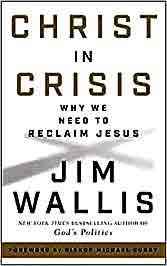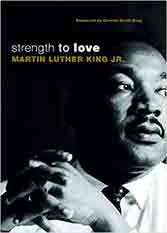Understanding Evangelical History, Deconstruction, and a New Hope
Faith After Doubt by Brian McLaren
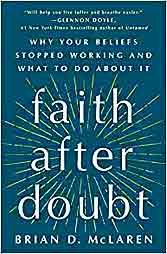
*Rachel’s note: In Faith After Doubt I found the answers to questions I didn’t know I had. Why was I compelled to get up in the middle of a church service and walk out, and have no idea why? Why are some Christians open to exploring new ideas when others feel duty-bound to protect the status quo? How can we communicate without killing each other? Is there hope for the Evangelical Church despite the politics that divide us? This book helped me understand where we’ve been, where we are, and what’s possible for the future.
The Official Review:
Sixty-five million adults in the U.S. have dropped out of active church attendance and about 2.7 million more are leaving every year. Faith After Doubt is for the millions of people around the world who feel that their faith is falling apart.
Using his own story and the stories of a diverse group of struggling believers, Brian D. McLaren, a former pastor and now an author, speaker, and activist shows how old assumptions are being challenged in nearly every area of human life, not just theology and spirituality.
He proposes a four-stage model of faith development in which questions and doubt are not the enemy of faith, but rather a portal to a more mature and fruitful kind of faith. The four stages―Simplicity, Complexity, Perplexity, and Harmony―offer a path forward that can help sincere and thoughtful people leave behind unnecessary baggage and intensify their commitment to what matters most.
Jesus and John Wayne
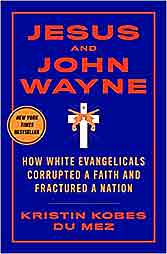
*Rachel’s note: To be honest, my heart just sank as I read this book. I accepted Christ at the age of 30 in 1986, and it was the people of this culture who introduced me to Jesus. While I didn’t buy into all of it, I did accept much of what they told me as true. In my naivete,
I thought we were filtering our world view through Christ’s teachings. You can imagine my shock when the Religious Right backed Donald Trump. I just couldn’t understand how people who profess to follow Jesus Christ could possibly support someone who’s policies, words, and actions defy the commands of our Savior.
Well, Jesus and John Wayne explains it. Having been an Evangelical for thirty years, I’m still processing what I’ve learned. I’m praying about how not to throw the baby out with the bath water. Is there anything about their belief system that deserves to be preserved? It left me feeling as though I needed a shower. This book reveals how the Religious Right and the American Evangelical movement came to power, and the tragedy that it has nothing to do with Jesus.
The Official Review:
Jesus and John Wayne is a sweeping account of the last seventy-five years of white evangelicalism, showing how American evangelicals have worked for decades to replace the Jesus of the Gospels with an idol of rugged masculinity and Christian nationalism, or in the words of one modern chaplain, with “a spiritual badass.”
As Du Mez explains, the key to understanding this transformation is to recognize the role of culture in modern American evangelicalism. Many of today’s evangelicals may not be theologically astute, but they know their VeggieTales, they’ve read John Eldredge’s Wild at Heart, and they learned about purity before they learned about sex―and they have a silver ring to prove it.
Evangelical books, films, music, clothing, and merchandise shape the beliefs of millions. And evangelical popular culture is teeming with muscular heroes―mythical warriors and rugged soldiers, men like Oliver North, Ronald Reagan, Mel Gibson, and the Duck Dynasty clan, who assert white masculine power in defense of “Christian America.” Chief among these evangelical legends is John Wayne, an icon of a lost time when men were uncowed by political correctness, unafraid to tell it like it was, and did what needed to be done.
Christ In Crisis
*Rachel’s note: While Christ in Crisis offers a comprehensive comparison between the teachings of Jesus Christ and the policies and behavior of Donald Trump, what I found most useful is an 8-page synopsis: the Reclaiming Jesus Declaration- in approaching church leadership with clear explanations of the need for, as well as the whys and hows of, new ideas.
The Official Review:
Writing in response to our current “constitutional crisis,” New York Times bestselling author and Christian activist Jim Wallis urges America to return to the tenets of Jesus once again as the means to save us from the polarizing bitterness and anger of our tribal nation.
Jim Wallis provides a path of spiritual healing and solidarity to help us heal the divide separating Americans today. Building on “Reclaiming Jesus”—the declaration he and other church leaders wrote in May 2018 to address America’s current crisis—Wallis argues that Christians have become disconnected from Jesus and need to revisit their spiritual foundations. By pointing to eight questions Jesus asked or is asked, Wallis provides a means to measure whether we are truly aligned with the moral and spiritual foundations of our Christian faith.
“Christians have often remembered, re-discovered, and returned to their obedient discipleship of Jesus Christ—both personal and public—in times of trouble. It’s called coming home,” Wallis reminds us. While he addresses the dividing lines and dangers facing our nation, the religious and cultural commentator’s focus isn’t politics; it’s faith.
As he has done throughout his career, Wallis offers comfort, empathy, and a practical roadmap. Christ in Crisis is a constructive field guide for all those involved in resistance and renewal initiatives in faith communities in the post-2016 political context.
The Immoral Majority: Why Evangelicals Chose Political Power Over Christian Values
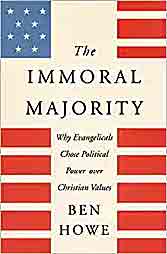
Now a National Bestseller!
Evangelicals are losing the culture war. What if it’s their fault?
*Rachel’s note: My journey in the Resistance began with heartache. I was absolutely unable to grasp how fellow Christ-loving believers could follow Trump, whose policies and behavior blatantly violate Jesus’ teachings. The Immoral Majority explains how the political juggernaut known as the Religious Right came to power. It helped me understand the ‘why’ behind this head-scratching turn of events.
The Official Review:
In 2016, writer and filmmaker Ben Howe found himself disillusioned with the religious movement he’d always called home. In the pursuit of electoral victory, many American evangelicals embraced moral relativism and toxic partisanship.
Whatever happened to the Moral Majority, who headed to Washington in the ’80s to plant the flag of Christian values? Where were the Christian leaders that emerged from that movement and led the charge against Bill Clinton for his deception and unfaithfulness? Was all that a sham? Or have they just lost sight of why they wanted to win in the first place? From the 1980s scandals till today, evangelicals have often been caricatured as a congregation of judgmental and prudish rubes taken in by thundering pastors consumed with greed and lust for power. Did the critics have a point?
The Immoral Majority, Howe—still a believer and still deeply conservative—analyzes and debunks the intellectual dishonesty and manipulative rhetoric which evangelical leaders use to convince Christians to toe the Republican Party line. He walks us through the history of the Christian Right, as well as the events of the last three decades which led to the current state of the conservative movement at large.
As long as evangelicals prioritize power over persuasion, Howe argues, their pews will be empty and their national influence will dwindle. If evangelicals hope to avoid cultural irrelevance going forward, it will mean valuing the eternal over the ephemeral, humility over ego, and resisting the seduction of political power, no matter the cost. The Immoral Majority demonstrates how the Religious Right is choosing the profits of this world at the cost of its soul—and why it’s not too late to change course.
What Does Living a Lifestyle Like Jesus’ Look Like?
The Irresistible Revolution: Living As an Ordinary Radical
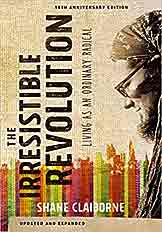
*Rachel’s note: Shane Claiborne’s lifestyle is shocking. It’s a long-overdue reminder of how Jesus’ life looked in His time on Earth. It’s a wake-up call for those of us who call ourselves Christ-followers. It is a desperately needed answer to the Religious Right’s mainstream doctrine. Read it. It will change your life.
The Official Review:
In this updated 10th Anniversary Edition of Irresistible Revolution, Shane Claiborne uses unconventional examples from his own life to stir up questions about the church and the world, while challenging readers to truly live out their Christian faith. With new material throughout the book and a full new chapter, Shane brings readers up to date on the “revolution”–adding new stories, sharing what his community looks like now, and bringing fresh inspiration to live out this message in practical ways.
Irresistible Revolution, Shane Claiborne describes an authentic faith rooted in belief, action, and love, inviting us into a movement of the Spirit that begins inside each of us and extends into a broken world.
“The irresistible revolution isn’t just about going to heaven when you die but bringing heaven down as you live. The love we’re talking about is big enough to set both the oppressed and the oppressors free. It’s about healing our broken hearts, healing our broken streets, and healing our broken world. The revolution we are talking about begins inside each of us and extends to the ends of the earth.” –Shane Claiborne
Dr. Martin Luther King Jr. Speaks On Peaceful Resistance and Love
Strength To Love by Dr. Martin Luther King Jr.
*Rachel’s note: I grew up in Miami in the 1960’s, and watched the fires of discontent literally burning in the night sky from my bedroom window. For years I’ve admired the teachings and legacy of Dr. King.
When this current crisis arose, I knew I needed a guide- a Christian whose non-violent resistance changed the world. This book is a series of sermons by MLK, written in an astonishing style- one foot in the reality of his peoples’ suffering, and the other firmly planted in the Word of God.
Having won the Nobel Peace Prize for combating racial inequality. I cannot imagine a better guide.
The Official Review:
If there is one book Martin Luther King, Jr. has written that people consistently tell me has changed their lives, it is Strength to Love.”
So wrote Coretta Scott King. She continued: “I believe it is because this book best explains the central element of Martin Luther King, Jr.’ s philosophy of nonviolence: His belief in a divine, loving presence that binds all life.
That insight, luminously conveyed in this classic text, here presented in a new and attractive edition, hints at the personal transformation at the root of social justice: ” By reaching into and beyond ourselves and tapping the transcendent moral ethic of love, we shall overcome these evils.”
In these short meditative and sermonic pieces, some of them composed in jails and all of them crafted during the tumultuous years of the Civil Rights struggle, Dr. King articulated and espoused in a deeply personal compelling way his commitment to justice and to the intellectual, moral, and spiritual conversion that makes his work as much a blueprint today for Christian discipleship as it was then.
Individual readers, as well as church groups and students will find in this work a challenging yet energizing vision of God and redemptive love.

